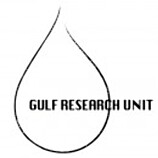
Archive: Gulf Research Blog
Blog articles from 2009 to 2012. The Gulf Research Unit is research programme based at the University of Oslo.
Qatalum and Labor Rights
Denne artikkelen er over ti år gammel og kan inneholde utdatert informasjon.
By: Magnus Gravem
April 12th 2010 Qatalum aluminum plant opened in Qatar. This is the world’s biggest aluminum plant and a 50/50 joint venture between the Qatari company Qatar Petroleum and the Norwegian company Hydro. 5.7 billion USD has been invested in this project, and over 56.000 laborers from 86 different countries have been directly involved in the construction of this plant.
The grand opening of this plant was a major happening, and the guest list included royals, ministers and other VIP guests from Norway, Qatar and around the world including Qatar’s Amir Hamad bin Khalifa al-Thani and Norwegian Crown Prince Haakon.[1] Both the official Qatar and the official Norway were present to celebrate this event.
There are certainly many possible benefits for both Qataris and Norwegians with the creation of this joint venture. However, it also should raise some questions of how a Norwegian company should act in a country with a poor history in the field of labor rights.
The situation of the expatriates working in Qatar is not what is considered appropriate in Norway or most other Western countries. Hydro’s CEO and President, Svein Richard Brandsvæg indicated that Hydro was not fully satisfied with the situation of the labor force that built this plant. Thus the situation of the laborers building Qatalum cannot have been within Hydro’s standards of labor rights. According to Norwegian media, Norwegian minister of industry and trade, Trond Giske, had discussions with Qatari political leaders with the aim of improving the situation of the expatriates in the country.
Hence, the situation of expatriates in Qatar, including the expatriates at Qatalum, is not considered acceptable by Norwegian standards. Despite this, the Norwegian company chooses to do business in this country with what seems to be fully supported by Norwegian authorities. Since labor rights is one of the cornerstones of the ethical considerations of the Norwegian government for Norwegian companies,[2] this would indicate that instead of supporting this collaboration, Norwegian authorities could, or should, have been a lot more critical. It has also been surprisingly quiet from the press in this matter, even though the coverage of the opening was extensive.
On the other side, however, it could also be discussed how the best way to actually change the situation of the labor force in Qatar really is. It could certainly be argued that doing business in a country with a labor force without any political powers or rights could be unethical. However, the approach it would seem that Norwegian authorities, and Hydro, have taken in this particular case is a more diplomatic approach: Change through dialogue and collaboration. It could easily be argued that this is a more efficient way to change this situation, and to create a better situation for the expatriates in Qatar. Hydro has an extensive description of how they try to ensure acceptable working conditions in Qatalum on their homepage.[3] These efforts include competitive salary, free housing, health and social services for the employees and their families.
Since this project is high profile and a major investment for Hydro, it will be extremely interesting to see how the Norwegian company will work for continuously improving the situation of the expatriates working for them in the future. It will also be interesting to see if Norwegian authorities will increase the pressure on Qatari authorities to ensure the very same thing.
[1] www.hydro.com
[2] in Report to the Storting No. 10 2008-2009
[3] www.hydro.com






